The David McCullough books in order depict catastrophes, engineering triumphs, and some of the most influential people of the last two centuries. He made a name for himself through combining a talent for storytelling with a love of research. The result are books which tell a vivid recollection of some of the most important moments in American history.
About David McCullough
David McCullough died in August 2022 and in his obituary, he was acclaimed as a master of the art of narrative history. In addition to such an accolade, he was also given many honors and awards throughout his life, including the Presidential Medal of Freedom.
McCullough also received the Pulitzer Prize twice and the National Book Award twice.
He grew up in Pittsburgh, Pennsylvania and studied English literature at Yale University. He also became friends with professor and playwright Thornton Wilder, and toyed with the idea of becoming a playwright too.
However, it was while he was working for magazines in the 1950s that McCullough discovered how much he enjoyed research. He was never intimidated by the size of his projects or research topics because he found it fun. That genuine care and interest shines through in his writing.
For many years he typed his stories up on a Royal Standard typewriter from his home on Martha’s Vineyard in Massachusetts. McCullough also narrated many documentaries, hosted on public television, and narrated the film Seabiscuit.
There has been one adaptation of his works, the 2008 HBO mini-series John Adams. It was produced by Tom Hanks starring Paul Giametti and Laura Linney. Hanks had been in talks of adapting a second McCullough work, but it has not come to fruition.
What books did David McCullough win the Pulitzer Prize for?
David McCullough won the Pulitzer Prize twice, for back-to-back publications. The first was for Truman in 1993 and the second was for the next book he wrote, John Adams in 2002.
McCullough was first nominated for a Pulitzer Prize in 1982 for Mornings on Horseback. He is one of only ten people who have won a Pulitzer Prize for Biography or Autobiography twice.
In addition to his Pulitzer Prizes, McCullough also received two National Book Awards. The first was for The Path Between the Seas in 1977 and the second was for Mornings on Horseback in 1981.
David McCullough Books in Order
Nonfiction Books
David McCullough is regarded as one of the best nonfiction authors of all time. With the nature of the nonfiction genre, there is no need to read his books in a particular order. You can choose which figures or time period interests you the most and proceed from there.
However, there is always insight to be gained by reading an author’s books in order of publication. This is because you will be able to glean how they grow as a writer and discover their voice. As well, 1776 can be read as a companion book to John Adams, which does follow the order of publication.
- The Johnstown Flood (1968)
- The Great Bridge (1972)
- The Path Between the Seas (1977)
- Mornings on Horseback (1981)
- Brave Companions (1991)
- Truman (1992)
- John Adams (2001)
- The Course of Human Events (2004)
- 1776 (2005)
- In the Dark Streets Shineth (2010)
- The Greater Journey (2011)
- The Wright Brothers (2015)
- The American Spirit (2017)
- The Pioneers (2019)
Anthologies
In addition to his nonfiction books, McCullough also contributed to a few anthologies.
- What If?: The World’s Foremost Historians Imagine What Might Have Been (1999)
- Records of Our National Life: American History at the National Archives (2009) (Out of Print)
- The American Experiment: Dialogues on a Dream (2021)
A Summary of David McCullough Books in Order
Below you will find the first ten David McCullough books in order. The summaries will explain in a bit more detail the focus of these books, and the way in which McCullough approaches writing about the past.
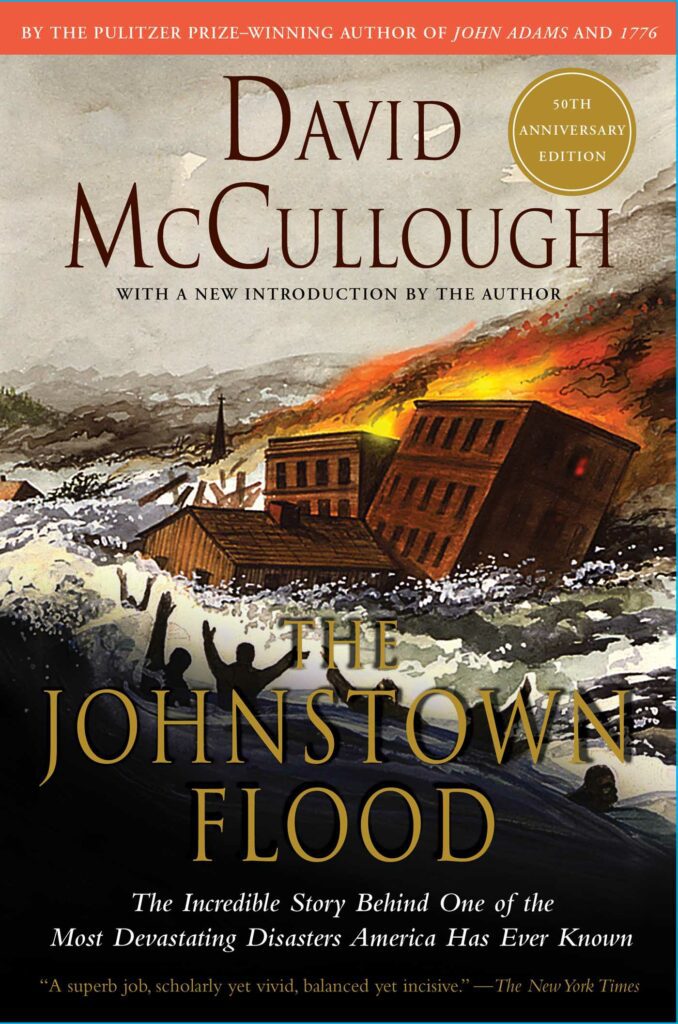
1. The Johnstown Flood
At the end of the nineteenth century, Johnstown, Pennsylvania was a booming coal-and-steel town striving for a piece of the industry on a national scale. Meanwhile, up above the town an old earth dam had been hastily rebuilt to create a lake for an exclusive summer resort. Some of the patrons of the resort were industry tycoons such as Andrew Carnegie, Henry Clay Frick, and Andrew Mellon.
Warnings about the potential danger were ignored. Then on May 31, 1889, the dam burst. The water smashed through Johnstown and killed more than 2,000 people. David McCullough recreates the national scandal in his recount while also offering a sympathetic warning about assuming those in positions of power behave responsibly.
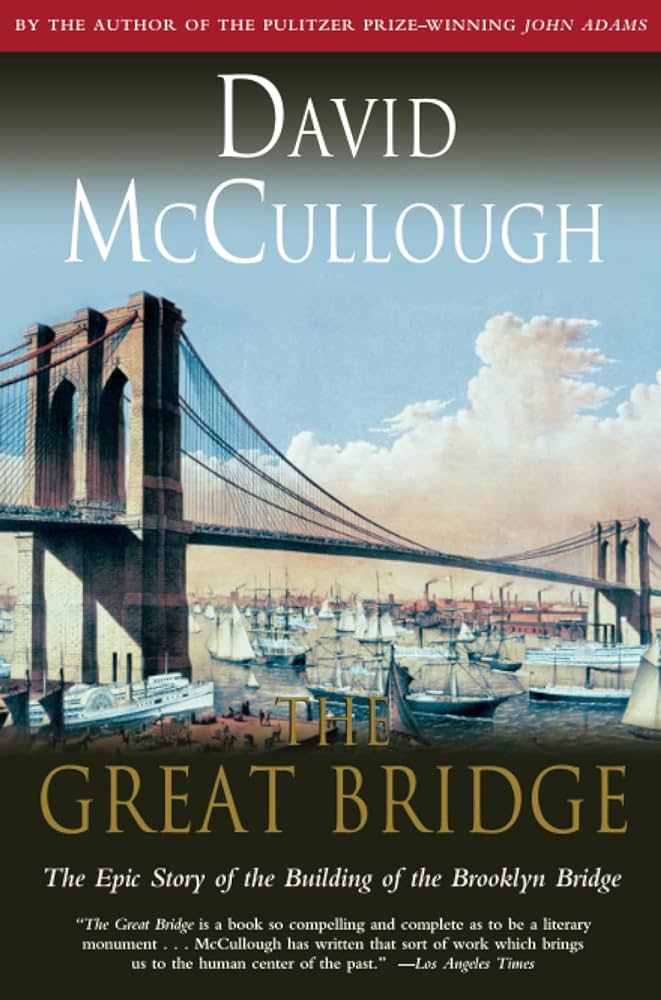
2. The Great Bridge
Following his debut book about a tragedy, McCullough wanted to write about something more uplifting, which is what led to the creation of this story about the construction of the Brooklyn Bridge. The cities of New York and Brooklyn were rapidly expanding, but from the beginning many thought the building of the bridge to be an impossibility either from technical problems or political corruption.
However, its construction would be the greatest engineering triumph of its time. It is at once a work of art, an American icon, and a story like no other. The best and the worst of human nature play a part in its story. At the center were the chief engineer, Washington Roebling, and his wife, Emily Warren Roebling, who never gave up.
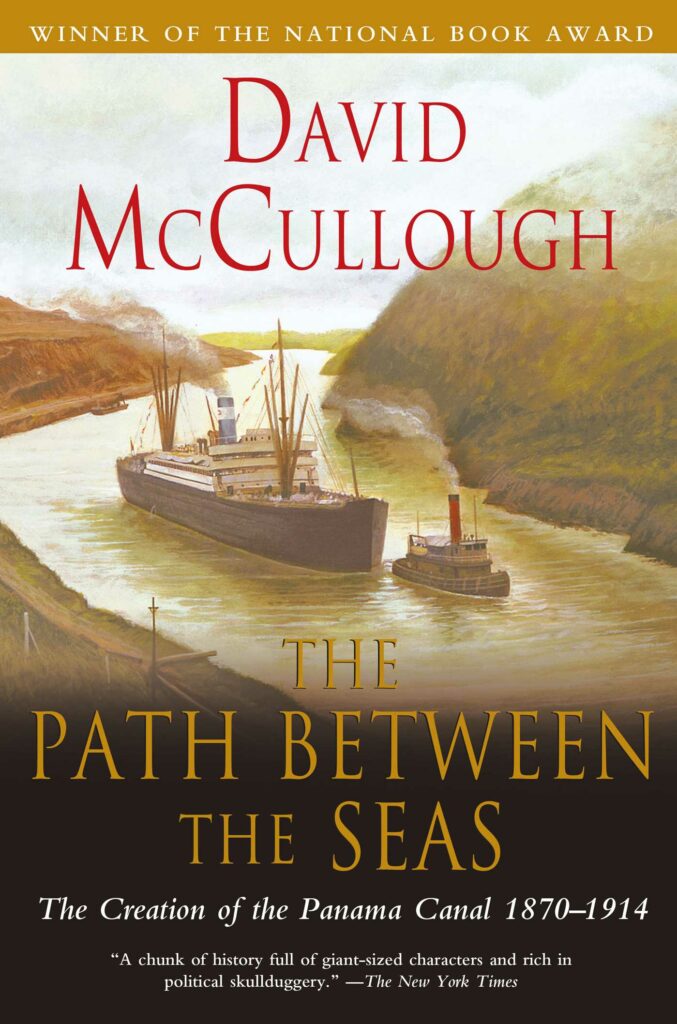
3. The Path Between the Seas
On December 31, 1999, the United States officially ceded ownership of the Panama Canal to the nation of Panama. But McCullough’s story begins a century before — spanning from 1870 until 1914 — before the existence of the nation.
McCullough presents 1848 as the beginning of the necessity for the Panama Canal with the gold rush in California. Suddenly a wave of fortune seekers wanted quick passage on California-bound ships in the Pacific and the Panama Railroads was built to serve that traffic.
It seemed easy to some to build a canal to replace the railroad, but the effort involved thousands of workers from many nations throughout four decades. President Theodore Roosevelt was the one who orchestrated the American purchase of the Canal, but he also incited a revolution that removed Panama from Colombian rule.
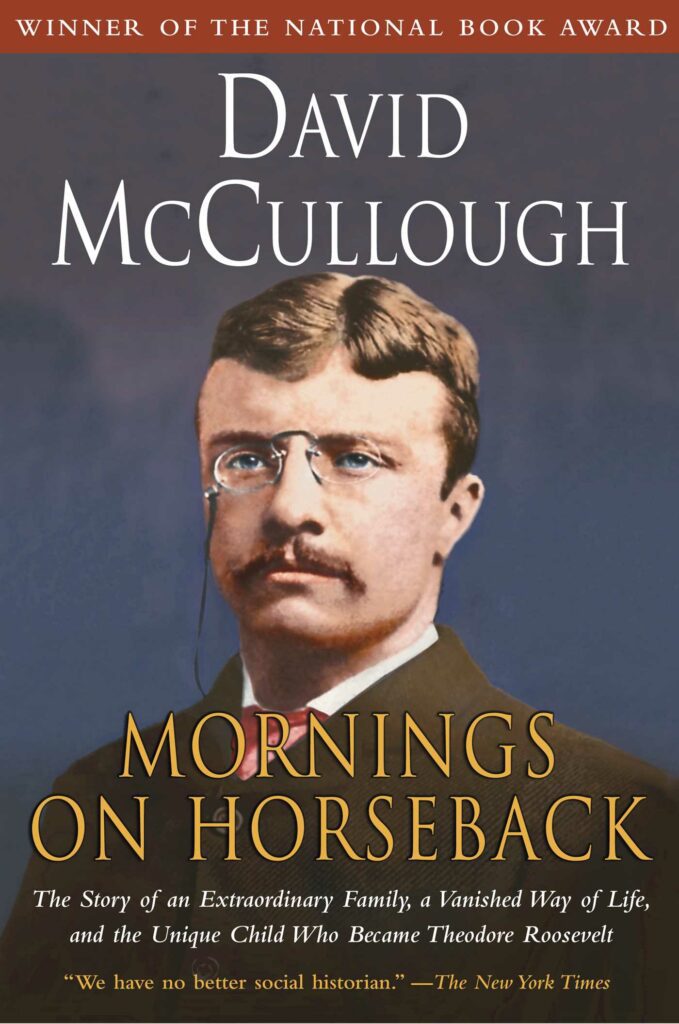
4. Mornings on Horseback
In his biography of Theodore Roosevelt, McCullough focuses on his younger life from 1869 until 1886. McCullough gives great details to his father, mother, sisters, and brother. He also gives life to Theodore Roosevelt’s tragic first love, Alice Lee.
The book is an enthralling story about family love and loyalty, grief and courage. McCullough pulls information from private Roosevelt family papers and present knowledge of the disease to examine Roosevelt’s asthma closely for the first time.
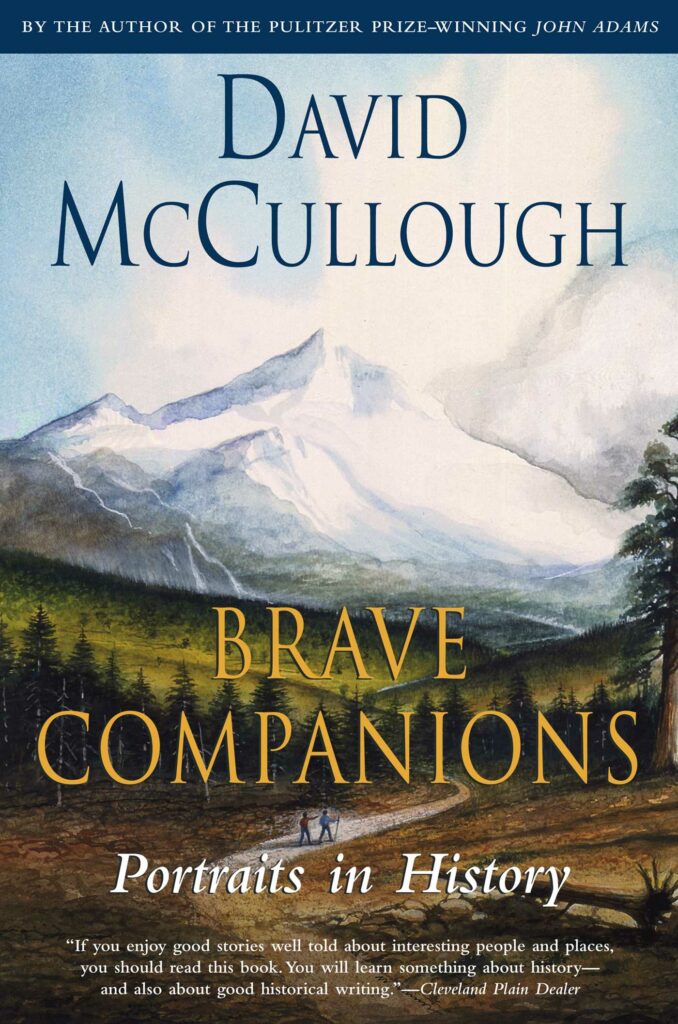
5. Brave Companions
Next is a collection of profiles detailing the lives of exceptional men and women. McCullough chose figures whose vision and achievements continue to have a lasting impact. The people he chose all have a sense of purpose in common which makes them all brave companions.
One such figure is Alexander von Humboldt, whose explorations of South America surpass the Lewis and Clark expedition. Another is Harriet Beecher Stowe, a little woman who made the big war. A third example is Harry Caudill, a Kentucky lawyer who awakened the nation to the tragedy of Appalachia.
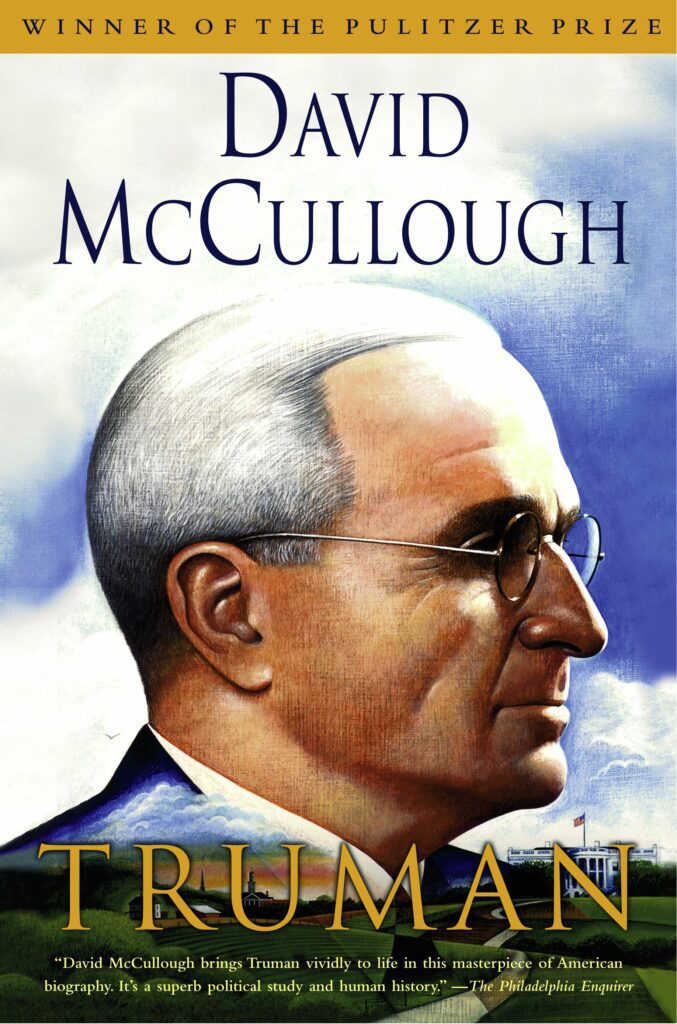
6. Truman
As previously mentioned, this is one of the books for which McCullough won a Pulitzer Prize. The life, and subsequently the biography, of Harry D. Truman is filled with vivid characters: Roosevelt, Churchill, Stalin, Eleanor Roosevelt, Bess Wallace Truman, George Marshall, Joe McCarthy, Dean Acheson, and more.
McCullough details both Truman and the turbulent times in which he rose to meet unprecedented challenges. He was the last president to serve as a living link between the nineteenth and twentieth centuries and preside over a changing age. McCullough draws on newly discovered material and interviews to paint a portrait of the man who may have been the most courageous president in American history.
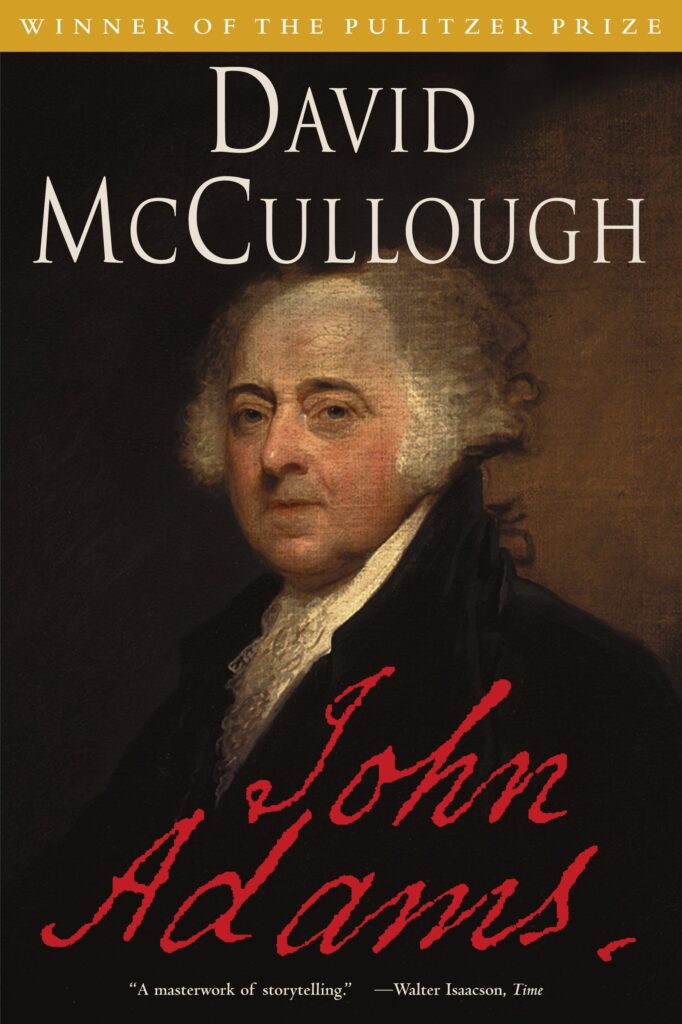
7. John Adams
Next, McCullough wrote another biography which won another Pulitzer, but this one details the adventurous life of John Adams. Adams spared nothing in his passion for the American Revolution and went on to become the second President of the United States.
In what has become his signature, McCullough is able to tell a deeply moving story of history with the flare of a novel. He uses Adams family letters to tell the tale, including more than a thousand which survive between John and Abigail Adams.
McCullough set out to write about both Adams and Jefferson initially, but as his research progressed, his focus kept coming back to Adams. Despite this, Jefferson is still part of the biography through his relationship with Adams and McCullough’s way of telling a story from within.
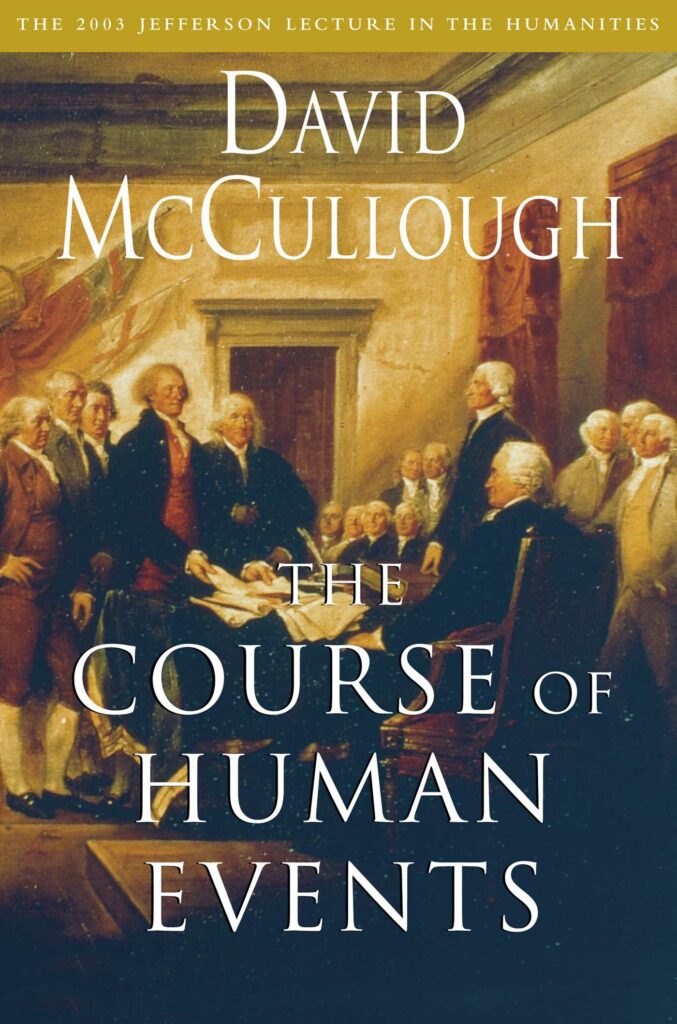
8. The Course of Human Events
This book is a transcript of a speech McCullough gave in the 2003 Jefferson Lecture in the Humanities. In it he delves into his philosophy on writing, speaking, and history.
He draws on his personal experience as a historian to acknowledge the crucial importance of writing history’s enduring impact and influence. He also affirms the significance of history in speaking about human nature through the ages.
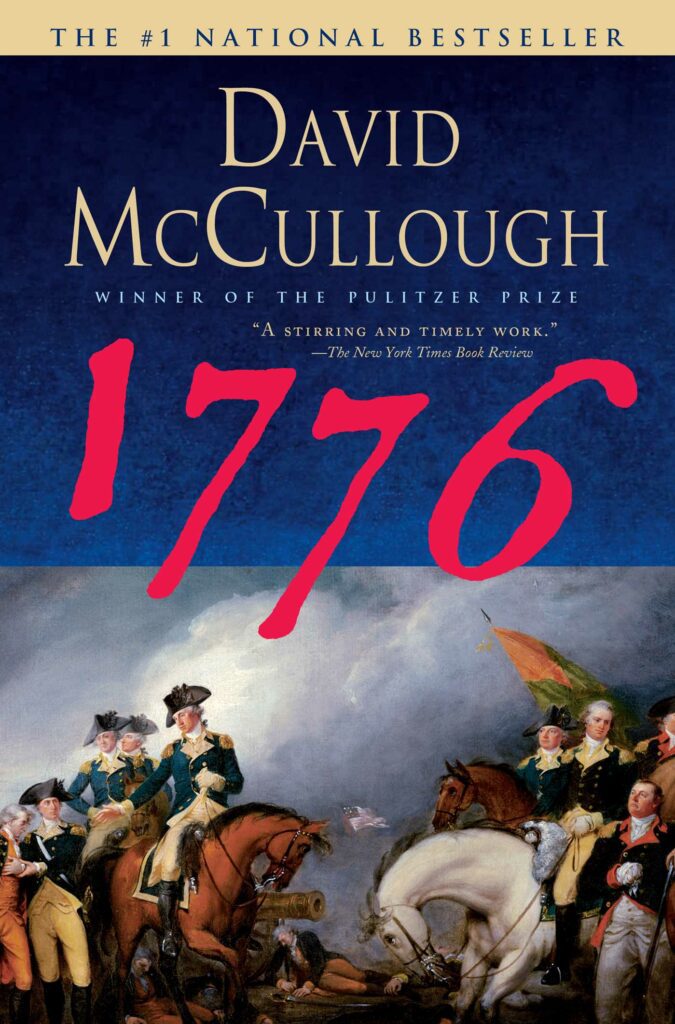
9. 1776
McCullough utilized both American and British archives to recreate an intensely human story of the American Revolution. He tells the stories of the Americans in the ranks and of the British commander, William Howe, who oversaw his redcoats.
General George Washington is at the center of the drama, and alongside him are two young patriots, Nathaniel Green and Henry Knox. This account can be seen as a companion work to his previous biography of John Adams as McCullough reveals more of history.
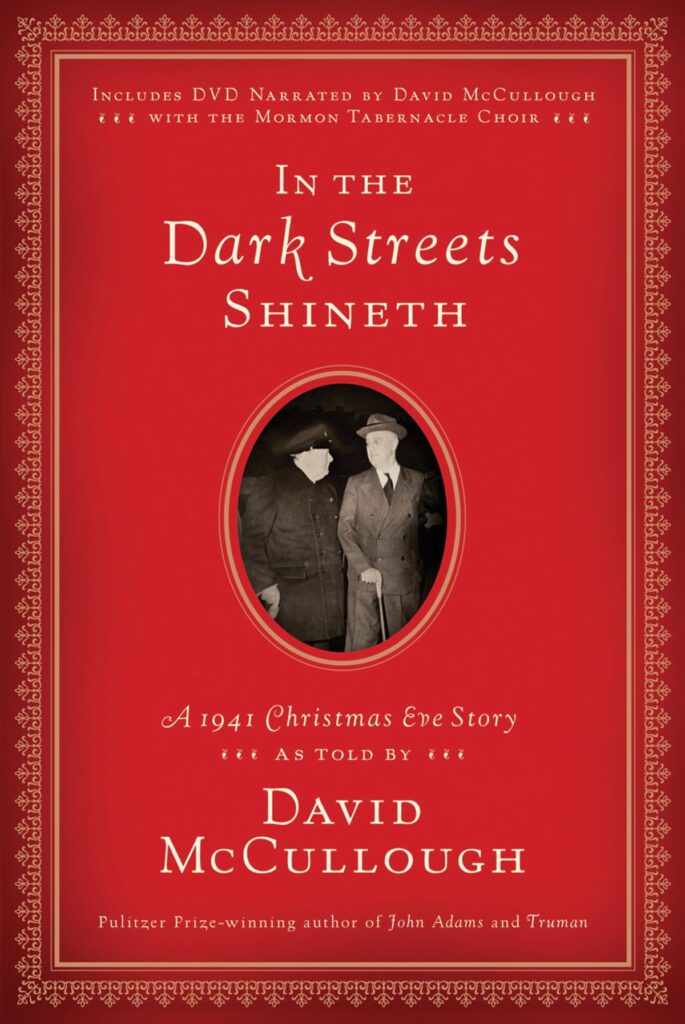
10. In the Dark Streets Shineth
Finally is a much slimmer account from McCullough about Christmas Eve in 1941. It was only days after the attack on Pearl Harbor when British Prime Minister Winston Churchill and U.S. President Franklin D. Roosevelt met at the White House. As war raged on, the two leaders delivered a message of hope that continues to resonate today.
McCullough also shares the stories behind the songs “O Little Town of Bethlehem” and “I’ll Be Home for Christmas.”
Final thoughts
The David McCullough books in order provide a rich portrait of critical moments in history. McCullough brings the past to life by researching his topic thoroughly and creating a vivid setting. He is regarded as one of the best American history writers, so if you have an interest in American history, reading his books will be an informative delight.